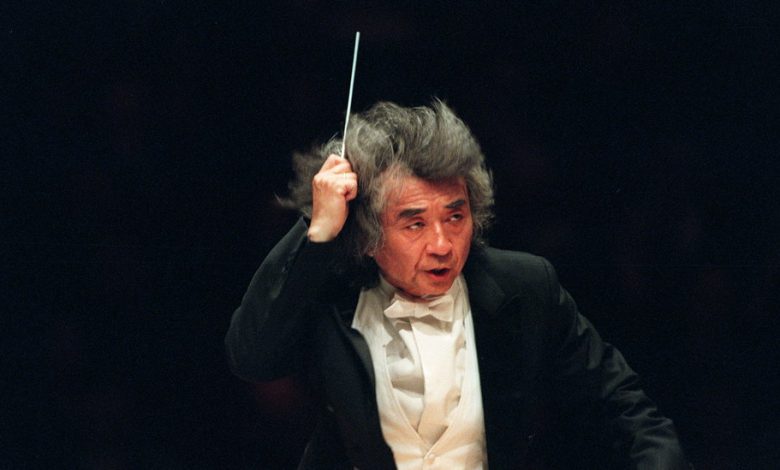Seiji Ozawa, Captivating Conductor, Is Dead at 88

Seiji Ozawa, the high-spirited Japanese conductor who took the Western classical music world by storm in the 1960s and ’70s and was music director of the Boston Symphony Orchestra from 1973 to 2002, died on Feb. 6 in Tokyo. He was 88.
The cause was heart failure, said a spokeswoman for the Seiji Ozawa International Academy Switzerland, which announced his death in a news release.
Mr. Ozawa had recently experienced health problems. He never fully rebounded from surgery for esophageal cancer in early 2010, or from back problems that were made worse during his recovery. He was also hospitalized with heart valve disease in later years.
Mr. Ozawa was the most prominent harbinger of a movement that has transformed the classical music world over the last half-century: a tremendous influx of East Asian musicians into the West, which has in turn helped spread the gospel of Western classical music to Korea, Japan and China.
For much of that time, a belief widespread even among knowledgeable critics held that although highly trained Asian musicians could develop consummate technical facility in Western music, they could never achieve a real understanding of its interpretive needs or a deep feeling for its emotional content. The irrepressible Mr. Ozawa surmounted this prejudice by dint of his outsize personality, thoroughgoing musicianship and sheer hard work.
With his mop of black hair, his boyish demeanor and his seemingly boundless energy, Mr. Ozawa captured the popular imagination early on.
We are having trouble retrieving the article content.
Please enable JavaScript in your browser settings.
Thank you for your patience while we verify access. If you are in Reader mode please exit and log into your Times account, or subscribe for all of The Times.
Thank you for your patience while we verify access.
Already a subscriber? Log in.
Want all of The Times? Subscribe.